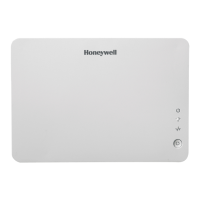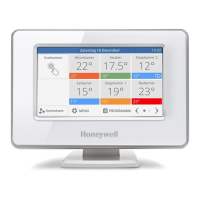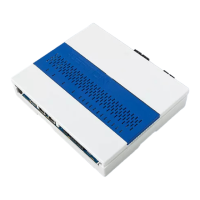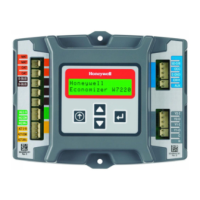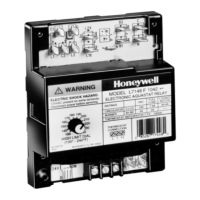ENGINEERING CMANUAL OF AUTOMATION CONTROL
AIR HANDLING SYSTEM CONTROL APPLICATIONS
203
INTRODUCTION
This section describes control applications for air handling
systems commonly found in commercial buildings. The basic
processes such as heating, cooling, humidification,
dehumidification, and ventilation are presented individually
then combined into typical air handling systems. A discussion
covering requirements for effective control is also included to
provide guidelines for the design of the actual air handling
systems with the related controls. Examples are based upon
digital control systems. These digital control strategies may
not be practical with other forms of control, and may not be
possible with all digital controllers or by all digital controller
programmers.
Also throughout the section, dashed lines indicate interlocked
links and solid lines functional relationships between control
items.
Psychrometric aspects are included for most applications.
They are shown in abbreviated form. Unabridged copies of
ASHRAE Psychrometric Charts No. 1 and No. 2 are included
at the end of this section for reference. For further understanding
of the basics of psychrometric charts refer to the Psychrometric
Chart Fundamentals section.
For additional detailed information on air handling systems,
refer to the ASHRAE 1996 HVAC Systems and Equipment
Handbook.
ABBREVIATIONS
The following abbreviations are used throughout this section
in the text and drawings. Refer to Definitions in the Control
Fundamentals section and the Psychrometric Chart
Fundamentals section for further details.
AHU —Air Handling Unit
BCMS — Building Control Management System
cfm — Cubic feet per minute
DB —Dry Bulb
DDC —Direct Digital Control
DP —Dew Point
EA — Exhaust Air
EPID — Enhanced PID
F —Fahrenheit
IAQ —Indoor Air Quality
MA —Mixed Air
MAT —Mixed Air Temperature
N.C.
1
— Normally Closed
N.O.
2
— Normally Open
OA — Outdoor Air
OAT — Outdoor Air Temperature
P — Proportional
PI —Proportional-Integral
PID —Proportional-Integral-Derivative
RA — Return Air
RAT — Return Air Temperature
RH — Relative Humidity
SA — Supply Air
VAV —Variable Air Volume
WB —Wet Bulb
1
Applies to valves and dampers that are actuated to fail in the closed position in the event of loss of motive force.
2
Applies to valves and dampers that are actuated to fail in the open position in the event of loss of motive force.
